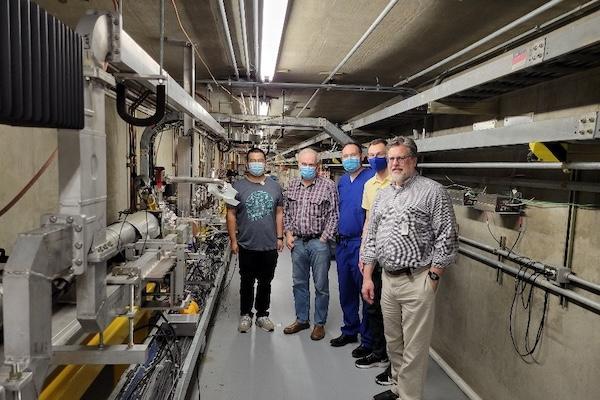Duke Neurosurgery among the top in NIH research funding
Duke Neurosurgery ranked sixth for funding nationally among neurosurgery departments in the U.S.
After Moyamoya Surgery at Duke, Woman Returns to Normal Life
In the summer of 2025, Charlotte, NC resident Marisa Chow was 28 when she had a stroke. Months later, she was diagnosed with Moyamoya disease -- a rare cerebrovascular condition where narrowed arteries reduce the brain's blood supply. Chow came to Duke Health, where neurosurgeon Erik F. Hauck, MD, performed a cerebral artery bypass surgery to improve blood flow in Chow’s brain. Now Chow says she’s “back to how I was, honestly, not even pre-surgery, but before I started experiencing all of the symptoms.”
Surgery to treat Moyamoya successfully stops patient’s recurring strokes
A 28-year-old female patient experienced weakness on the right side of her face, dysarthria, and numbness on her face and hand, with episodes occurring several times.
McDaniel named director of Duke AHEAD
Kate McDaniel, PhD, MSW, has been named the new director of Duke AHE
Neurocognitive outcomes and quality of life in patients with brain metastases are improving
As treatments improve for cancer that has spread to the brain and patients live longer, understanding the long-term effect of these treatments on brain function is vital. Despite treatment advances, up to 90% of patients with brain metastases experience cognitive decline due to both their cancer and the long-term side effects of their treatments.
Complex meningioma resection returns patient to active lifestyle
A 44-year-old female patient came to Anoop Patel, MD, Duke neurosurgeon, after being diagnosed with a meningioma brain tumor. The patient presented to an ED in South Carolina after experiencing a seizure.
Lad inducted to the American Academy of Neurological Surgery
Nandan Lad, MD, PhD, was inducted to the American Academy of Neurological Surgery at the society’s annual meeting in Athens, Greece.
Ostrom among Highly Cited Researchers for the sixth year
Duke Neurosurgery faculty member Quinn Ostrom, PhD, is featured on the Clarivate list of Highly Cited Researchers for the sixth time since 2020.
The annual list names researchers who have multiple publications ranked in the top 1% by citation in their fields and are further selected for exemplifying excellence and integrity in their work.
Transforming Reality: How gaming gear is impacting health care
With the increase in quality and decrease in costs, virtual reality is pushing its way into applications its early creators could only dream of—and health care is not exempt from this transformatio
FLASH forward: Ultra-high dose radiation could transform brain tumor therapy
In an underground facility beneath Duke's campus – the Triangle Universities Nuclear Laboratory (TUNL) – researchers are testing a new approach to radiation therapy that could transform how brain t








